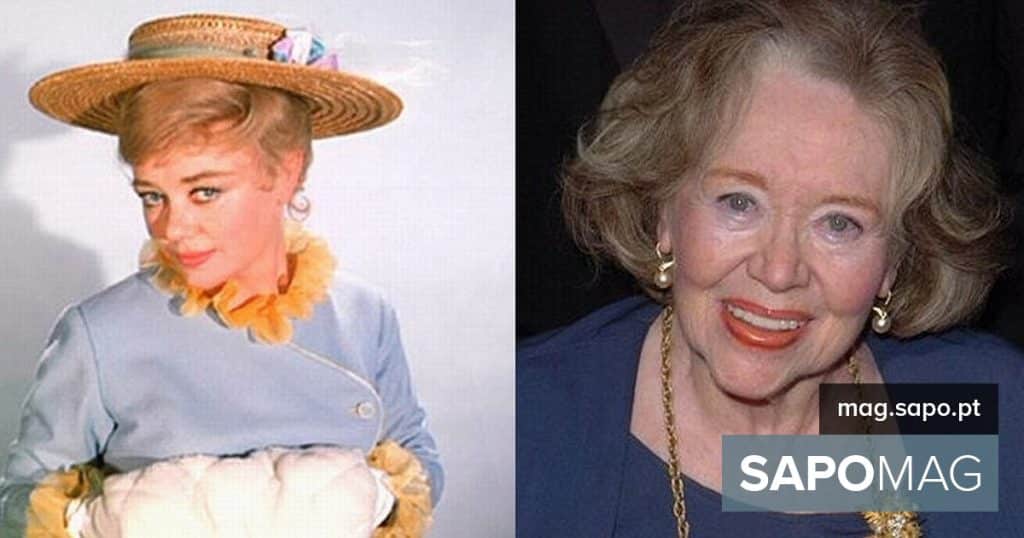Glynis Johns, immortalized in cinema as the mother of the Banks family and a suffragette in “Mary Poppins” (1964), died this Thursday (4), in a nursing home in Los Angeles. With 100 years celebrated on October 5th and a career with cinema notoriety that began in the 1940s, she was one of the last living stars of the “Golden Age” of Hollywood and British classic cinema. She was still the most veteran of Oscar nominees in all acting categories, the British star with more seniority in film and on stage (where she began in the 1930s) and the oldest honored with the Disney Legends award, the studio's official recognition for artists who made extraordinary contributions to the studio.Actress, singer and dancer who made plus 60 films and 30 plays, the greatest triumph was a Tony Award (Broadway's 'Oscars') for the musical “A Little Night Music”, in 1973, with Stephen Sondheim writing the theme 'Send in the Clowns' on purpose for her and her distinctive hoarse voice (the film version, however, went to Elizabeth Taylor, with “Song on a Midsummer Night” (1977), a famous box office flop, to be remembered mainly for the evident fluctuations star's weight from scene to scene).Born in Pretoria, South Africa, she began on stage in her early teens and after some secondary roles, such as the princess' maid in the classic “The Thief of Bagdad” (1940), His film career gained another prominence with the British war film “The Invaders” (1941), by the acclaimed duo Michael Powell and Emeric Pressburger, which earned him an award from the National Board of Review, the oldest US organization to distribute awards film annuals. “Tempting Mermaid” (1948) ” data-title=”Glynis Johns: the mother of the Banks family in the classic “Mary Poppins” dies at the age of 100 – SAPO Mag”> “Tempting Mermaid” (1948) Still secondary in “Wedding Vacation ” (1945), consolidates herself as one of the main young protagonists of British cinema with “This Man Is Mine” (1946), “Frieda, the Woman Who Conquered Hatred” (1947), “Tempting Mermaid” (1948), “Third Time Lucky” (1949), “State Secret” (1950) or “Flesh and Blood” (1951), with the owners of cinemas in her country naming her the 10th most popular star at the box office in 1951 and 1952. In 1951, “Fantastic Voyage”, where he was the third name in the cast after James Stewart and Marlene Dietrich, opened the doors of his career to cinema in the USA, which expanded the following year with the debut on TV and on Broadway.”The Sword and the Rose” (1953) was the first work for Disney and the journey on the big screen, between dramas, comedies, adventure films and 'thrillers', continued with “Rob Roy, the Great Rebel ” (1953), “Black Walls” (1954), “Men Crazy” (1954), “Josefina and the Men” (1955), “The Jester” (1955), “Honeymoon in Monte Carlo” (1956), “The Sun Rises Tomorrow” (1957), “The Love I Stole” (1958), “Hand in Hand with the Devil” (1959) and “The Spider's Web” (1960). The culmination of this period was “Three Wandering Lives” (1960), by Fred Zinnemann, which led to her nomination for the Oscar for Best Supporting Actress, before continuing with “The Cabinet of Dr. Caligari” (1962), “The Intimate Lives of Four Women” (1962) and even as the protagonist of a comedy series named after him, “Glynis” (1963), which lasted just 13 episodes. “Mary Poppins”” data-title=”Glynis Johns: the mother of the Banks family in the classic “Mary Poppins” dies at the age of 100 – SAPO Mag”> “Mary Poppins” At the age of 39 and with a career predominantly in cinema and on stage , even accustomed to having songs written specifically for her, legend has it that Glynis Johns thought she would play Mary Poppins, the role that would go to Julie Andrews, upon Walt Disney's first contact. certain that the actress accepted the invitation to be the matriarch of the Banks family, the studio leader increased the role in relation to the one that existed in PL Travers' books and commissioned the Sherman brothers to create a musical number specifically for her, which would become ” Sister Suffragette. Close them under lock and key (1969), “Sob o Bosque de Leite” (1971) and some appearances as a guest in series preceded the most acclaimed phase of her career, dedicated mainly to the stage in the 1970s and 1980s. for the small screen, in addition to the inevitable appearances as a guest in “The Love Boat” or “Crime, Said Ela”, the role of the pompous mother of Diane Chambers (Shelley Long) in an episode of “Cheers, That Bar” stood out. Before retiring in 1999, she appeared in three films, always in the roles of a grandmother, with the most important being in “This (Not) Is a Kidnapping” (1994), where she clashed with her son played by Kevin Spacey. This was followed by “While You Were Sleeping”, the romantic comedy that became a huge success and made Sandra Bullock a movie star, before leaving with “Superstar” (1999), alongside Will Ferrell.
